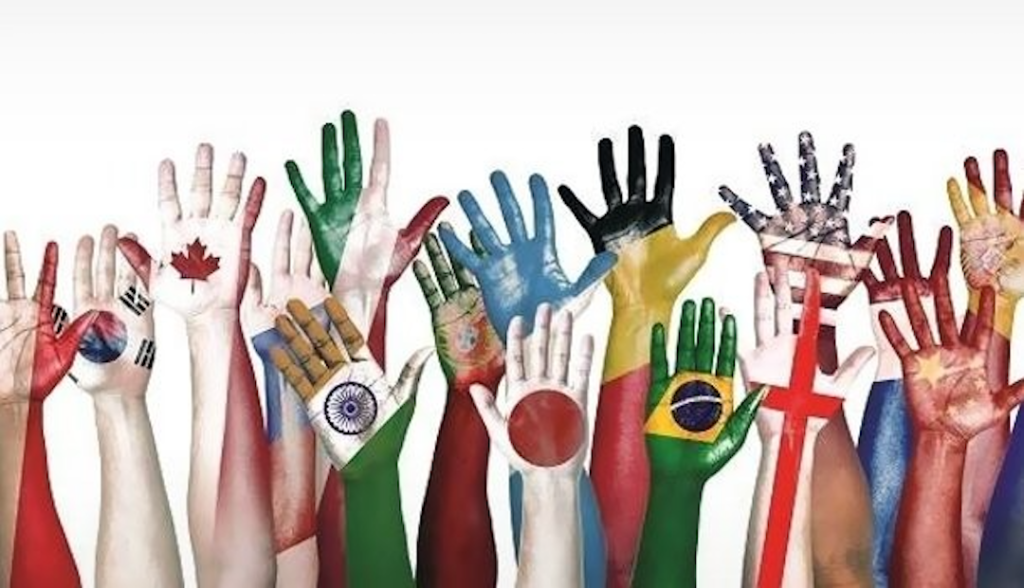Photo Credit: Aarón Blanco Tejedor | Unsplash
Steps for managing a workplace as an expat.
Many have written books with this or similar titles, including personal friends of mine, Ronnie Lessum and Sudhanshu Palsule. Their book called Managing in Four Worlds, breaks down the world into 4 different cultural paradigms and promotes the idea that all organizations can benefit from an integrative approach which draws the best qualities from each context. Understanding the different paradigms can also assist managers become more cross-culturally sensitized so as to cultivate adaptive capacity in different cross-cultural management situations.
But despite all that’s been written on this subject (see a non-exhaustive list here), how are we doing in practice and why are so many organizations, especially those that are inherently multicultural like the UN and other multilateral bodies, failing to build truly cohesive multicultural workspaces?

A good friend of mine from one country working for a multilateral organization ended up taking health leave for nearly a year because of the toxic work environment created by a boss from another country. How much of that was due to personality clash versus cultural clash? More than likely, the source of the problem straddled the two possibilities.
Some companies that have sought to manage multicultural workplaces proactively use crossing cultural barriers as a point of entry for resolving conflictual workplace dramas that play themselves out across the world every day.

Years ago I worked for one major American multinational company that took American multiculturalism head-on by selecting members of the staff across departments and locations to immerse themselves in a week of emotionally intense and intentionally confrontational discourse on US racial and intercultural dynamics. They called these workshops the Urban Minorities and Awareness Workshops and over a period of several years conducted 550 of them involving 3500 staff members.
By the time I got to one of these workshops, the fiery management consultant who had pioneered this approach to sensitizing managers in multiracial workplaces had died. But his disciples had taken up the cause where he had left off. The workshops were painfully enlightening at best and psychically bruising at worst. Everyone, from all backgrounds, left at the end of the workshop week with invisible scars.
While this controversial approach to multicultural sensitization had some merit in the unique US context, it could trigger WWIII in the international realm.

Since leaving the US to work internationally initially for a two year period that has morphed into nearly 30, I’ve had to chart my own path in the absence of a clear roadmap for managing workspaces and people in cultures that are not my own. After living and working in five different countries immersed in cultures so divergent from my own, I believe I am uniquely qualified to share a bit of practical wisdom on this topic.
I have often witnessed terrible culture clashes when VIP delegations plop into a country for a brief but intense whirlwind visit only to breeze out with their heavy entourages, often leaving bruised local egos in their wake. While these encounters are almost inevitable under the circumstances (although they shouldn’t be) those who are deployed to work for extended periods overseas are much better placed to get this right if they put some effort and thought into it.
“4R” TIPS FOR WORKING ACROSS CULTURES
So here are my 4R “managing across cultures” tips that you can follow once you receive word that you are being deployed to work in another country.

The first ‘R” is get “Ready.” Undertake a rigorous investigation into your destination location. Read up on it to get a feel for the history and cultural context. That way, you will begin to build up sensitivity and the capacity to avoid missteps that you might commit should you go in completely unprepared. If you happen to know anyone who is either from the culture into which you are headed or who has lived there, reach out to that person to get some insights from them. When I was headed to Jordan for a job there, I got connected to a friend of a friend who was working there and she was an immense help in providing me the kind of orientation companies should provide but often don’t. But even if my organization had provided an orientation, there was advice unique to my situation that my friend’s friend offered, that I would never have received otherwise. For instance, how do you get your hair done when you are black in Jordan?

The second “R” is be “Relaxed.” Obviously, the more you prepare by getting ready, the more relaxed you will be. But in addition to that, I always tell people to leave their “cultural” and “pre-conceptual thinking” baggage at the airport upon their arrival in their new destination. That can either interfere with your ability to soak in the culture or it can get you unnecessarily worked up about what you may have heard about your new host country that may likely be exaggerated.
In one African country where I worked, I took over from another Western woman. The driver told me that because this place had been known as one of the rape centers of the world, my predecessor believed strongly that she would undoubtedly be raped if she set foot outside her door without an escort. While they were driving, she would cower in the back trying to shield herself from this “inevitable” attack.
Obviously, a woman alone should be careful anywhere whether it’s Central Park, Trafalgar Square, the Ramblas in Barcelona or La Corniche in Dakar. However, what this woman did not realize was that while still tragic, most of the victims of this terrible scourge were local. Instead of being so terrified, she could have made herself more useful, as a “protected” foreigner to combat the situation.
Whenever I go to a place that I’ve been told or seen on the media is dangerous, I always tell myself “people live there”
So, it’s important ahead of your arrival to take a “chill pill” while taking in your new surroundings with normal and not hyper paranoid cautiousness. Whenever I go to a place that I’ve been told or seen on the media is dangerous, I always tell myself “people live there” and so surely people are surviving. One just has to take precautions that are suited to the prevailing conditions. So that means that precautions taken in Beijing will not be the same as those taken in Kabul.
Early in my career, I was asked to go to a part of South Africa where violence was raging, just before the end of Apartheid. There had just been a massacre there that I was, in fact, tasked with investigating. Once I got there and connected with locals who were also involved in the same work, I felt more at ease and emboldened by their courage and resolve to steer the country out of its dark past and into a brighter future.

The third is to be Rooted. Don’t just stay there – be as much a part of the soil as you possibly can without being “of the soil.” That means, the food, the language, the music, the pastimes which translates into eating moqueca or acaraje if you find yourself in Bahia, Brazil or learning Arabic in Oman, listening to Soca in Jamaica or going to the bullfight or flamenco bars (the ones where locals go) in Madrid. Be spontaneous and connect to locals as much as you can.
On my first visit to South Africa, I met someone who invited me to tag along with her as she had some errands to run. I had no idea where it would take me but was open to ending up anywhere. Turns out, she had been asked to supply one of the dresses for the wedding of one of Nelson Mandela’s daughters and I ended up in a very crowded house whose owner, I was later told, was the late Winnie Mandela. The more people I connected to, the more I was able to weave a uniquely complex fabric of “South Africaniana.”
When I started to shake hands holding my elbow, that’s when I knew that I had started to culturally internalize and expand who I am. In that instance, I was learning how to be respectful in that culture – hugely important in business interactions.

The fourth and final R is a word of caution. Be Realistic! Lest you become too carried away with being “rooted,” keep your feet on the ground and stay mindful that you are still an expat. Getting to understand how office politics works, particularly when there is a potential for expats to be targeted, is crucial. In some places, office politics can be brutal, including a few places where I have lived. Sometimes the work environment challenges can’t be avoided but the damage is minimized if the challenges related to crossing cultures can be anticipated. Often, you can only anticipate based on learning the hard way since most organizations omit this “nitty gritty” part of your deployment orientation. That’s where talking to people who know the “lay of the land” ahead of time can soften your landing.
All 4 of these “Rs” when applied and integrated into your cross-cultural management style will collectively project the overarching “R” – RESPECT! I have always adored and respected every place where I have lived and worked and as a result, the positives almost inevitably outweigh the negatives.

So, if you’re someone who loves to experience the world’s amazing human rainbow and richly diverse contextual landscapes as much as I do, you will relish the experience of managing across cultures.
3 thoughts on “Managing Across Cultures”
Leave a Reply
You must be logged in to post a comment.

Thanks for your blog, nice to read. Do not stop.
Thank you for the feedback!
I have to thank you for the efforts youve put in writing this blog. Im hoping to check out the same high-grade blog posts by you later on as well. In fact, your creative writing abilities has encouraged me to get my own website now 😉